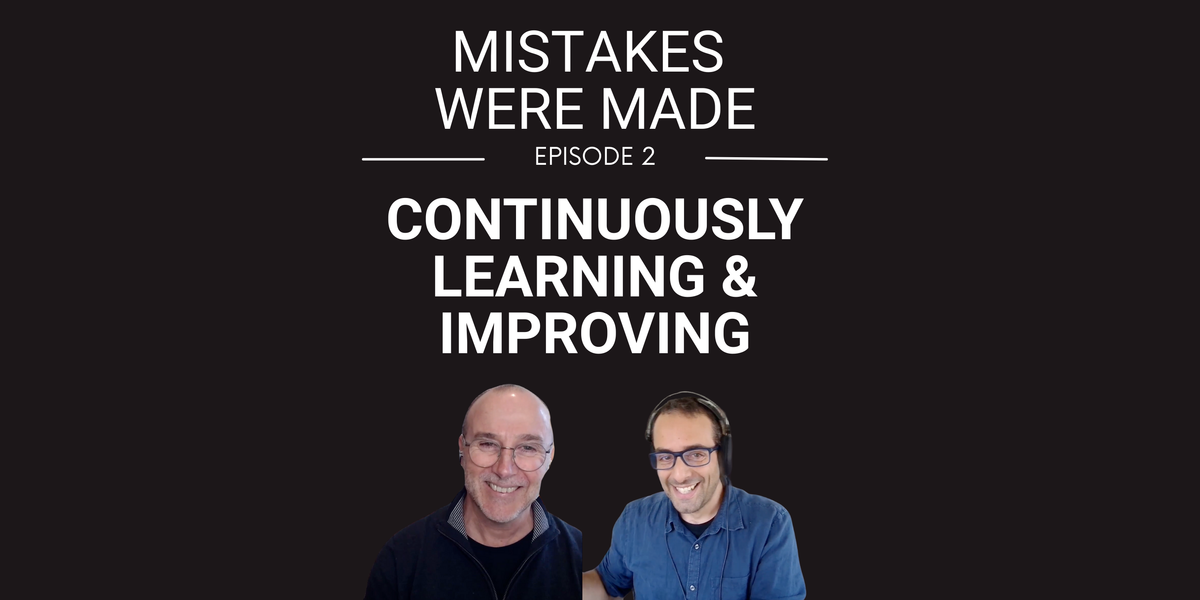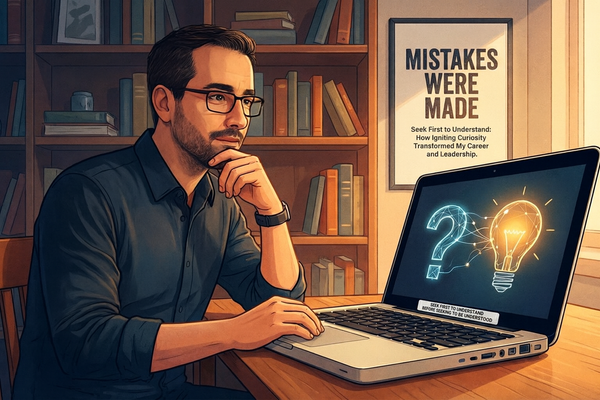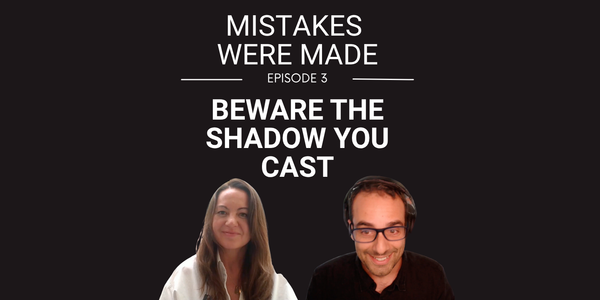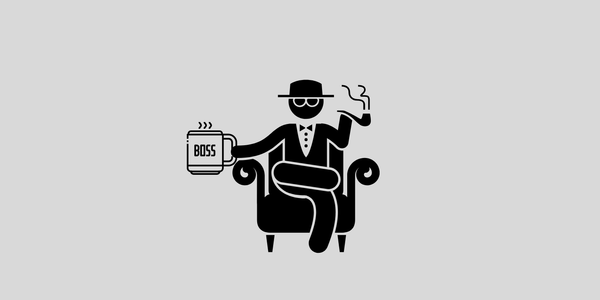Working to Your Strengths with Ross Rotherham - Episode 2

I used to roll my eyes at personality tests. Early in my career, I loved the idea of them and treated it like a life hack, but over time, it rarely delivered an aha moment or behavioural change that was promised.
Then Ross Rotherham reached out and nudged me to try CliftonStrengths. I ignored his invite for a while (sorry Ross), but he was patient, and with another nudge, I finally did it, and the results nailed me. It changed how I think about my work, leadership, and mentoring others.
Listen now on
- Apple Podcasts - https://podcasts.apple.com/us/podcast/episode-2-working-to-your-strengths-with-ross-rotherham/id1834834624?i=1000728987435
- Spotify - https://open.spotify.com/episode/5xmfxkBrISxGuB1Vs1634f?si=5a8a7d5e17d2477e
- YouTube - https://www.youtube.com/watch?v=LKq-nZdQ6Rk
- Podbean - https://mistakesweremade.podbean.com/e/mistakes-were-made-episode-2-working-to-your-strengths-with-ross-rotherham/
- LinkedIn - https://www.linkedin.com/pulse/working-your-strengths-ross-rotherham-mistakes-were-made-podcast-79uzc
CliftonStrengths in simple terms
CliftonStrengths is an online assessment that asks 177 quick questions and ranks 34 talent themes from most to least natural for you. It focuses on what is right with you, not what is wrong. You get clear language for how you tend to think, feel and act, plus a report that helps you use those strengths with intent.
My Top 5 came back as Learner, Arranger, Developer, Ideation and Responsibility. No surprise to anyone who knows me. What I loved was how clearly it explained why I enjoy my job and the work I do. When roles gave me space to use those strengths, I thrived. When they did not, I ran out of steam.
Why I rate it
I used to keep a spreadsheet to map the things I enjoyed doing against what a role or company could offer me. It was my way to check the right role, the right company, the right stage. Clunky, but useful. I shared it with people I mentored and it helped a bit.
CliftonStrengths blew that scrappy spreadsheet out of the water. It helps people make real decisions, not just nod along in a workshop.
- Which roles make sense – match your day-to-day with what energises you
- What training to chase – skill up where your strengths can compound
- Which companies will resonate – choose cultures and leaders that fit how you operate
- How to articulate your value – explain your superpowers to an employer and help them understand how to unlock your best work
I am thrilled Ross made the time to chat about CliftonStrengths. It was brilliant to get his leadership insight, hear the story of the worst feedback he ever received, and learn the difference between a coach and a mentor. I found that distinction especially useful.
Episode highlights with Ross
- Raw vs mature strengths – raw is undirected energy, mature is the same talent aimed at outcomes. This was a great insight, as I can now see how my lust for learning was chaotic earlier in my career.
- Energisers matter – strengths come with needs. If you starve those needs, motivation drops. Build your week to feed them. This also ties in with my love of structured work plans, but that’s for another episode.
- Blind spots are real – your superpower at volume 11 can land badly on the other side. Calibrate the dose, watch how you are perceived.
- Mentor versus coach – mentors share experience and advice, while coaches ask questions to help you think better. Both are valuable, use the right tool and be careful that you are not
- Ask for advice, not feedback – it is easier for people to offer useful ideas about next time than to critique the past. Try, “How would you like me to run that differently next time?”
- Model listening – seek to understand before being understood. Slow down, summarise what you heard, then respond. Simple, not easy.
Practical steps you can take this week
- Do the assessment, then book a debrief with someone who knows the model. A guided conversation makes it stick.
- Write your energisers – for your Top 5, list one thing you need each week to stay charged. Put them in your calendar.
- Shape your role by strengths – trade tasks where possible so more people spend more time in their strength zone.
- Switch your ask – after meetings, ask two people, “One thing to do differently next time?” Capture it and try it.
- Tune perception – pick one blind spot risk and add a tiny behaviour change, for example add a warm line to Slack messages, smile before you speak, pause two seconds before answering.
Favourite lines from the episode
- “You can learn something useful from every human you interact with, if you listen properly.”
- “Bottom themes are not weaknesses, they are things that do not come naturally.”
- “Giving feedback is a gift. If you want good to become great, you need it.”
Who this episode is for
First-time leaders building trust and credibility. Sales engineers moving into leadership. Anyone who wants a clear, positive way to make better career decisions and explain their value.
Listen and share
Search Mistakes Were Made, Episode 2 in your podcast app, or watch the full conversation on YouTube. If this helped, pass it to a new leader who is figuring it out.




